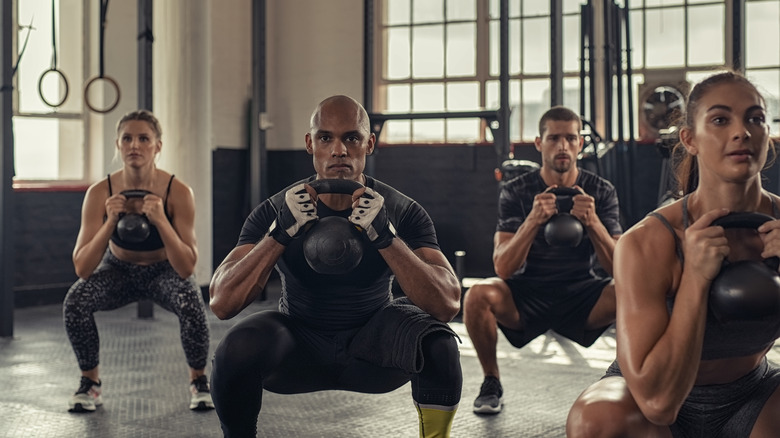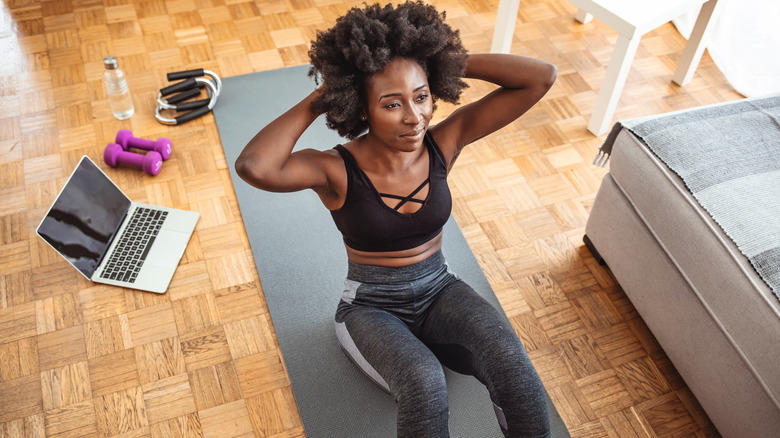What It Really Means When You Pee A Little During A Workout
Let's be honest, nobody wants to pee on themselves, especially after a workout. Post-workout endorphins kick in making you feel great, but a little pee can instantly change the vibes from feeling good to embarrassing and dreadful. While urine leakage or incontinence is fairly common during exercise, the issue here is due to stress urinary incontinence (SUI), points out the Center for Urologic Care.
This happens when sphincter muscles in your urethra are under too much pressure or stress, so they open up briefly. When this happens a tiny amount of pee is released. "Your nervous system and certain muscles are not coordinating well with one another to be able to take on the force or pressure exerted, and so this allows urine to exit the urethra," physical therapist, Dr. Amelia Ponchur, DPT, tells Well+Good.
You may even notice you pee a little when you laugh, cough, or sneeze since the same concept of too much pressure is put on the bladder. Nevertheless, the most susceptible movements that create a leakage tend to be exercise. Among these are running, high-interval training, plyometric work, and strength training exercises.
Here's how to stop urine leakage when you exercise
When it comes to treating stress urinary incontinence (SUI), the Center for Urologic Care recommends non-surgical approaches. This includes doing kegel exercises and bladder training, where you track your bathroom visits, then gradually increase the time between visits. There are also devices that can be used to support the urethra including a clamp device for men and a vaginal pessary for women.
To minimize your risk during running, Mayo Clinic suggests focusing on your breathing and engaging your core muscles while practicing your Kegels. Next, you'll want to ensure proper form when running by not overstriding and maintaining your vision on the horizon. For plyometric moves, like jumping jacks, try smaller jumps and time your jumps with exhales, "or just slow it down to improve the reaction time of the pelvic floor muscles," points out Dr. Ponchur to Well+Good.
Otherwise, for more protection during back squats or any weight-lifting movement, focusing on breathwork and proper technique are the keys to staying dry. Keep in mind, lifting heavier weights does increase the risks of releasing urine since it strains the pelvic floor and core muscles, according to the National Health Service (NHS). Other lifestyle tips that may help include reducing caffeine, doing Pilates, losing any excess weight, and staying properly hydrated throughout the day.


